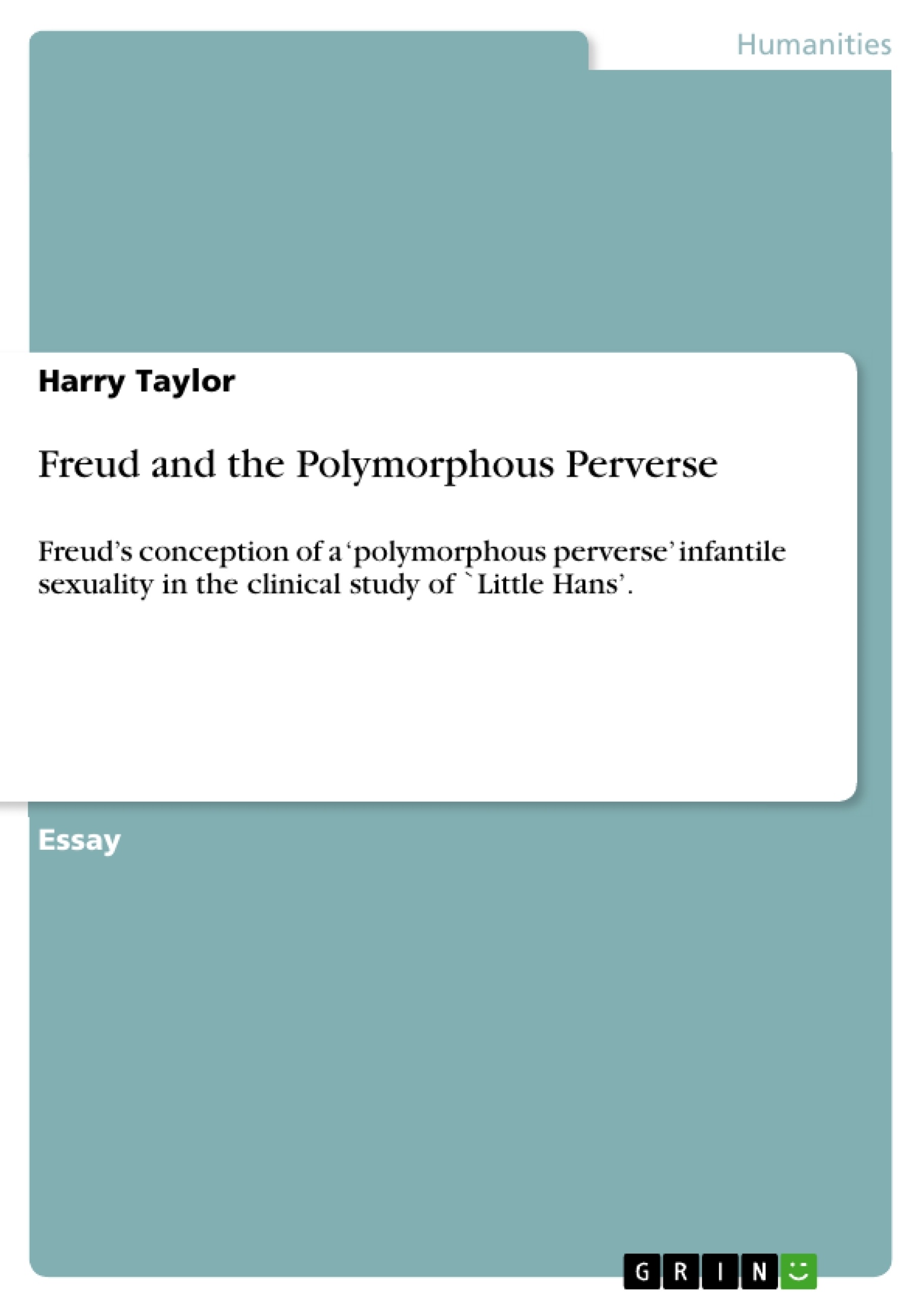Freud’s conception of a ‘polymorphous perverse’ infantile sexuality in the Three Essays emerges from his radical deconstruction of the traditional view of sexuality as a biological ‘instinct’ to reproduce. What are some of the key characteristics and gains of the Freudian view of sexuality? What does the clinical study of `Little Hans’ have to add to this picture?
Table of Contents
- Freud's Conception of Infantile Sexuality
- The Freudian View of Childhood Sexual Development
- The Oral Phase
- The Anal Phase
Objectives and Key Themes
This essay explores Freud's theories on infantile sexuality, particularly those outlined in his "Three Essays on the Theory of Sexuality," and examines their application in the "Little Hans" case study. It aims to provide a comprehensive understanding of Freud's concepts and to analyze their validity based on the clinical observations.
- Freud's radical deconstruction of traditional views on sexuality
- The concept of "polymorphous perversity" and its role in infantile sexuality
- The oral and anal phases of psychosexual development
- The relationship between the "Trieb" (drive) and the development of sexual instincts
- The clinical study of "Little Hans" and its implications for Freud's theories
Chapter Summaries
The essay begins by introducing Freud's groundbreaking concept of "polymorphous perversity," which challenges the traditional view of sexuality as a purely reproductive instinct. It argues that infants experience sexual pleasure through various bodily sensations and interactions, not just through the genitals. The essay then delves into the oral and anal phases of psychosexual development, highlighting the crucial role of the infant's relationship with food, control over bodily functions, and the emergence of active and passive instincts. The "Little Hans" case study will be explored in detail in subsequent chapters, providing insights into the clinical application and potential limitations of Freud's theories.
Keywords
Infantile sexuality, polymorphous perversity, psychosexual development, oral phase, anal phase, Trieb (drive), "Three Essays on the Theory of Sexuality," Little Hans case study, active and passive instincts.
- Quote paper
- Harry Taylor (Author), 2012, Freud and the Polymorphous Perverse, Munich, GRIN Verlag, https://www.grin.com/document/207918




